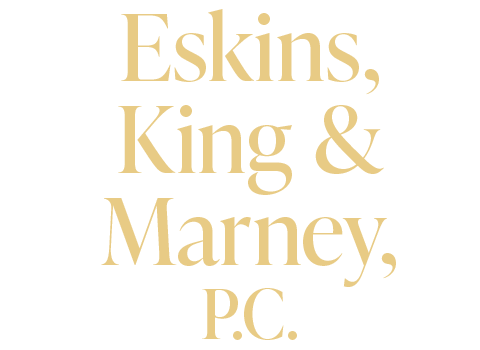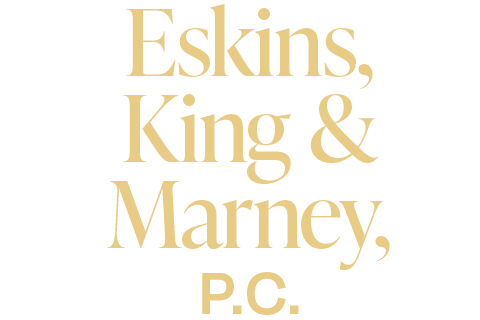Family Law and General Civil Mediation
Mediation Questions
Bradley W. Eskins Tennessee Rule 31 General Civil and Family Law Mediator
Bradley W. Eskins is a Tennessee Rule 31 General Civil and Family Law Mediator. He has decades of experience litigating general civil cases in numerous state and federal courts at the trial level and appellate level including the United States Supreme Court. He has represented plaintiffs in personal injury actions and has represented numerous defendants and insurance companies. Additionally, Mr. Eskins has significant experience in complex civil litigation and complex business litigation. With this experience, Mr. Eskins understands the challenges litigants face as a plaintiff and as a defendant.
Mr. Eskins also has a wealth of experience in family law litigation at both the trial and appellate level. As a litigator and as a mediator, Mr. Eskins prides himself as being able to resolve difficult matters in a mutually beneficial manner.
What is a Rule 31 Mediation?
The Tennessee Supreme Court has a rule that governs mediations and mediators. Accordingly, in Tennessee it is important to retain a Rule 31 Mediator. A “Rule 31 Mediation” is an informal process in which a Rule 31 Mediator conducts discussions among the parties that is designed to enable them to reach a mutually acceptable agreement among themselves.
What is a Rule 31 Mediator?
A Rule 31 Mediator is any person listed by the Tennessee Alternative Dispute Resolution Commission (“ADRC”) as a mediator, who has complied with all applicable renewal listing and continuing education requirements and is approved by the ADRC to conduct Court-Ordered Mediations.
Are disclosures made during mediation confidential?
Yes. With very few exceptions disclosures made during a mediation by a party are confidential. Generally, disclosures made during a mediation are not admissible in court. No Rule 31 Mediator may be compelled to testify by deposition or otherwise regarding such conduct, information, or statements. However, a written mediated agreement signed by the parties is admissible to enforce the understanding of the parties.
What should I expect from a mediator at the start of my mediation?
At the beginning of the mediation the Rule 31 Mediator shall:
(1) Make a disclosure of any known relationships that would affect the Mediator’s neutrality.
(2) Advise the parties regarding the Mediator’s qualifications and experience.
(3) Discuss with the parties the rules and procedures that will be followed in the Mediation.
What should I expect from a mediator during and after my mediation?
During and after a mediation the Rule 31 Mediator shall:
(1) Protect the parties and the process if the mediator feels that the mediation is, or is likely to become, inappropriate, unfair, or detrimental in the referred action.
(2) Maintain impartiality toward all parties. Impartiality means freedom from favoritism or bias in favor of or against any party, issue, or cause.
(3) Refrain from giving legal advice, while serving as a mediator, to the parties in the mediation. However, while a mediator should not offer a firm opinion as to how the Court in which a case has been filed will resolve the case, a mediator may point out possible outcomes of the case and may indicate a personal view of the persuasiveness of a particular claim or defense.
(4) Refrain from participation as attorney, advisor, judge, guardian ad litem, master, or in any related capacity in the matter in which the mediation was conducted.
(5) Provide a timely report as required.
(6) Avoid any appearance of impropriety in the mediator’s relationship with the Judge or the Judge’s staff about the mediation or mediation results.
(7) Preserve and maintain the confidentiality of all information obtained during the mediation and not divulge information obtained during the mediation without the consent of the parties, except as otherwise may be required by law.
(8) Assist the parties in memorializing the agreement of the parties at the end of the mediation. Mediators may assist the parties in filling out the Parenting Plan Forms maintained by the Administrative Office of the Courts pursuant to T.C.A. 36-6-404, the Marital Dissolution Agreement as approved by the Tennessee Supreme Court under Tenn. Sup. Ct. R. 52 and any other forms approved by the Tennessee Supreme Court.
(9) The Rule 31 Mediator shall not be called as a witness in any proceeding to enforce any terms of the resulting mediation agreement.
Family Law Mediation Questions
What should I expect during mediation?
During the mediation process you can expect your mediator to:
- Identify issues that need to be resolved;
- Prioritize your most important issues and focus on them one at a time;
- Consider possible solutions;
- Make all attempts to come to an agreement about parenting plans and/or financial or other issues presented;
- Have a draft prepared of their emerging agreement; and
- Review, revise, and prepare an agreement for signing.
A mediator cannot provide legal advice. While your mediator may be an attorney, during the mediation he or she is not acting as an attorney. Your mediator is in a unique role that does not involve representing or advocating for either party. Your mediator is neutral to both parties. Mediators can give you information about state laws and local court procedures and can inform you of resources, but they do not provide legal advice.
Do I or my spouse need to have a lawyer to go to Mediation?
You do not need to be represented by an attorney to attend mediation. It is recommended that you retain an attorney to provide you with legal advice during a family law dispute. However, often people cannot afford to retain an attorney. If you do not have an attorney, you may still schedule a mediation with our office. However, you must understand that the mediator is not acting as your attorney and the mediator does not represent you or your spouse.
Ready to get started?
Do not sign unless you have read and fully understand the terms of the retainer agreement. If you have questions, please feel free to contact Mr. Eskins to review and discuss the agreement and answer any questions you might have.
If you do not wish to register online, you may call Bradley Eskins or his paralegal
Tina Bryeans directly by calling (901) 578-6902, ext. 120, or by sending an email to
beskins@eskinsking.com
How do I retain your services as a mediator if I am represented by an Attorney?
Please have your attorney send an email to Bradley Eskins directly to retain his services. His email address is beskins@eskinsking.com.


